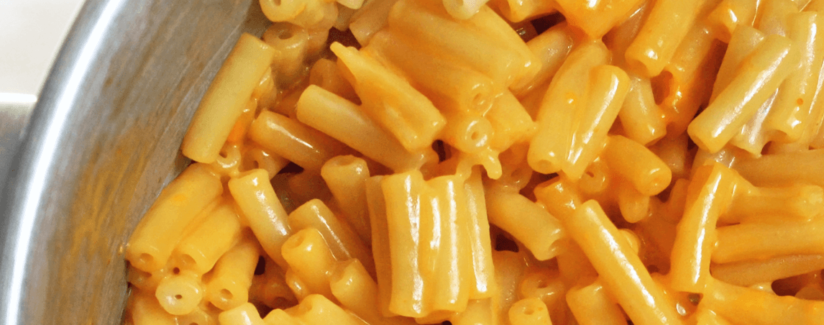
Is Mac and Cheese Safe?
07/24/2017
Macaroni and cheese is one of America’s favorite foods. But is it safe?
News articles have reported that boxed mac and cheese dinners contain phthalates. A study tested 30 different cheese products and detected phthalates in 29 of them. To get a better understanding of this study, and if we should be concerned about our mac & cheese, we reached out to Dr. Carl Winter, a toxicology expert at the University of California-Davis.
What are phthalates?
“Phthalates are chemicals that are used to improve the functionality of plastics,” he explained. “They are present in a wide variety of household products including cosmetics and are regulated as indirect food additives, when present in food contact materials, according to the U.S. Food and Drug Administration.”
Why are chemicals from plastics in food products?
“Phthalates are commonly found at low levels in foods and their presence is frequently associated with fatty foods such as milk, milk products (i.e. cheese and butter) and meats.”
He explained why phthalates have been studied. “Their presence in food has generated public concern as toxicological studies have demonstrated that high doses of phthalates fed to laboratory animals can cause birth defects and hormonal alteration.”
Those studies may be enough to cause some to choose to avoid these foods. But Dr. Winter emphasized that it is important to remember this principle of toxicology, which is “The dose makes the poison.”
“It is the amount of exposure to chemicals, not their presence or absence, that determines the potential for harm,” he explained. “While the ‘KleanupKraft’ study did detect the presence of phthalates in foods, it did not estimate consumer exposure to phthalates nor did it compare exposure levels to safety thresholds.”
“In the case of phthalates detected in food, several studies have demonstrated that the average daily exposure to phthalates is well below levels considered to be of toxicological concern,” Dr. Winter said.
So can we still enjoy mac and cheese?
“Consumers should continue to eat a balanced diet featuring ample quantities of fruits, vegetables, and whole grains, and it is not necessary to make dietary changes due to the presence of small levels of phthalates detected in specific food items,” he said.


























